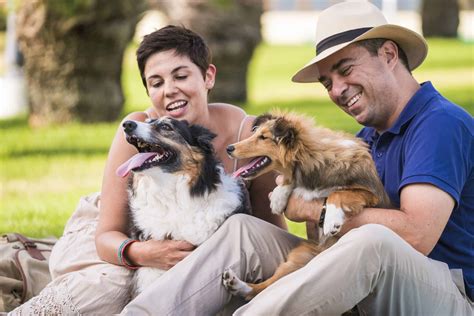Introduction
Dog parenting has become an increasingly popular lifestyle choice in recent years, with the number of households owning dogs in the United States alone estimated to reach 69.9 million by 2025. As dog parenting continues to gain traction, it is essential to consider its impact on social life and how it can affect our interactions with others.

Companionship and Socialization
One of the primary benefits of dog parenting is the companionship and socialization it provides. Dogs offer unconditional love and support, reducing feelings of loneliness and isolation. They also encourage physical activity and outdoor excursions, providing opportunities for socialization with other dog owners and dog enthusiasts.
Limitations on Social Activities
While dogs bring joy and companionship, they can also limit certain social activities. Attending social events with a dog may not always be convenient or feasible, especially if the dog is not well-behaved or requires constant supervision. This can lead to feelings of social isolation and missed opportunities for meaningful interactions.
Balancing Dog Parenting and Social Life
To successfully navigate the delicate balance between dog parenting and social life, it is important to:
- Establish Boundaries: Set clear boundaries for your dog’s presence in social settings. Inform friends and family about your dog’s temperament and any potential limitations.
- Consider Dog-Friendly Activities: Seek out social events that are specifically designed for dog owners, such as dog parks, group walks, and pet-friendly restaurants.
- Utilize Pet Care Services: Consider hiring a dog walker, pet sitter, or boarding facility to care for your dog while attending social events without them.
Impact on Social Relationships
Dog parenting can also impact social relationships in other ways. Some friends and family members may not be comfortable or interested in interacting with dogs, while others may be highly enthusiastic. It is important to respect the preferences of your loved ones and adjust your social interactions accordingly.
Future Trends
The future of dog parenting and social life is likely to be shaped by technological advancements and shifting social norms.
- Pet-Tech Integration: Wearable devices and smartphone apps are becoming increasingly popular for monitoring dog health, providing training tools, and connecting dog owners with each other.
- Increased Dog-Friendly Spaces: Businesses and public spaces are becoming more accommodating of dogs, allowing dog owners to bring their furry companions to more places.
- Changing Social Attitudes: The stigma surrounding dog ownership in social settings is gradually diminishing, making it easier for dog parents to maintain an active social life.
FAQs
1. How can I socialize my dog while maintaining a social life?
Attend dog parks, group walks, and pet-friendly events to expose your dog to other people and animals.
2. Is it possible to balance dog parenting with a busy work schedule?
Consider hiring a dog walker or pet sitter to care for your dog during work hours.
3. How do I deal with friends and family who are not comfortable with dogs?
Respect their preferences and limit dog interactions in those situations.
4. What are the benefits of dog parenting for seniors?
Dogs provide companionship, reduce loneliness, and encourage physical activity.
Conclusion
Dog parenting and social life can coexist harmoniously with careful planning and adjustments. By embracing the companionship dogs offer while recognizing the limitations they may impose, dog parents can enjoy the benefits of both worlds. As technology advances and social norms continue to shift, the future holds even greater opportunities for dog owners to balance their furry friendships with a fulfilling social life.





















